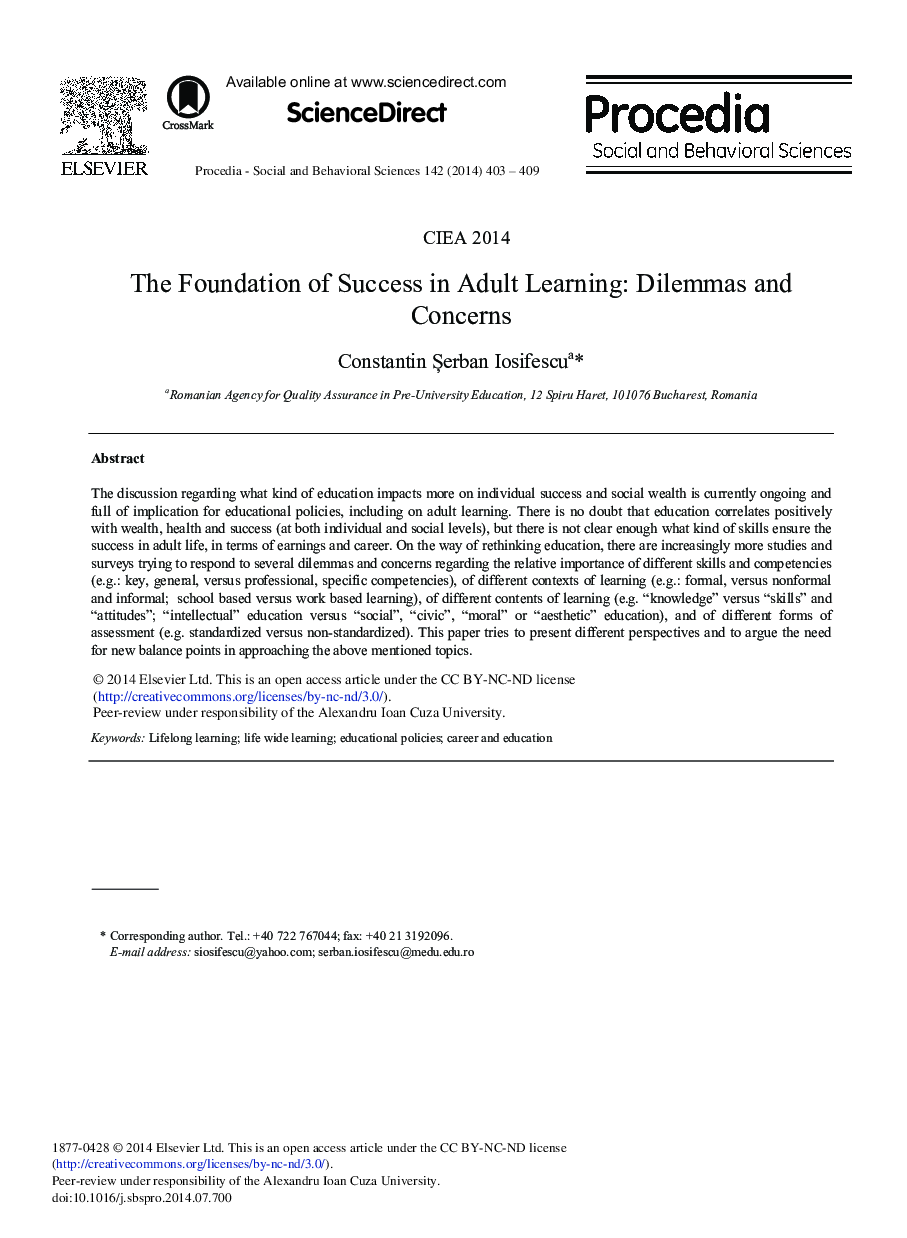| Article ID | Journal | Published Year | Pages | File Type |
|---|---|---|---|---|
| 1115662 | Procedia - Social and Behavioral Sciences | 2014 | 7 Pages |
The discussion regarding what kind of education impacts more on individual success and social wealth is currently ongoing and full of implication for educational policies, including on adult learning. There is no doubt that education correlates positively with wealth, health and success (at both individual and social levels), but there is not clear enough what kind of skills ensure the success in adult life, in terms of earnings and career. On the way of rethinking education, there are increasingly more studies and surveys trying to respond to several dilemmas and concerns regarding the relative importance of different skills and competencies (e.g.: key, general, versus professional, specific competencies), of different contexts of learning (e.g.: formal, versus nonformal and informal; school based versus work based learning), of different contents of learning (e.g. “knowledge” versus “skills” and “attitudes”; “intellectual” education versus “social”, “civic”, “moral” or “aesthetic” education), and of different forms of assessment (e.g. standardized versus non-standardized). This paper tries to present different perspectives and to argue the need for new balance points in approaching the above mentioned topics.
